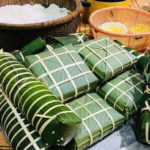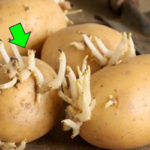Beef is a highly nutritious food and a rich source of nutrients for the body. In addition to its nutritional value, the way beef is processed and cooked also plays a crucial role in the taste and overall quality of the dish. This article delves into the question of whether beef should be washed before cooking and provides detailed information on how to properly wash it.
1 Should Beef be Washed Before Processing?
There are differing opinions on whether beef should be washed before cooking. Some believe that washing beef can help remove bacteria and reduce the meat’s odor. However, others argue that washing beef can negatively affect its taste and nutritional content.
Washing beef before processing is not entirely necessary because the cooking process itself eliminates bacteria. The key factor in processing beef is ensuring food safety and hygiene. It is important to cook beef thoroughly and at the right temperature to kill any bacteria and ensure both the safety and flavor of the dish.
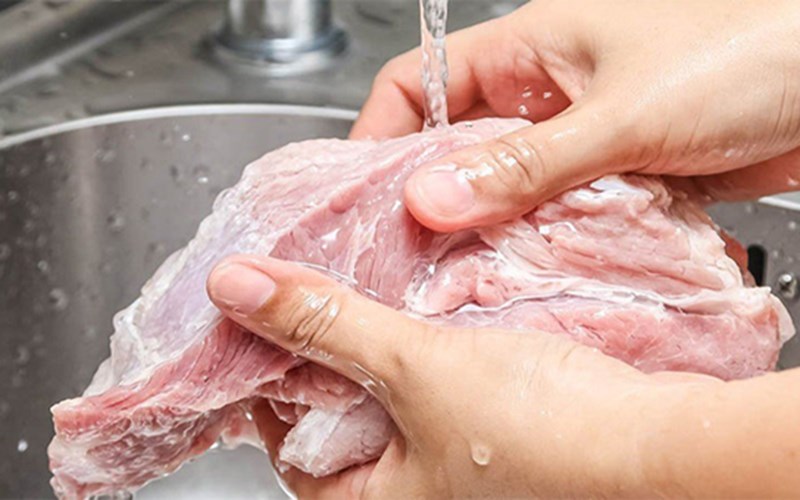
Should beef be washed before processing?
2 How to Wash Beef Without Losing Flavor
Washing Meat with Saltwater
One method to consider for washing beef is using saltwater. Simply soak the meat in diluted saltwater for 10-15 minutes, then remove it and pat dry the surface with a cloth or paper towel. This will help ensure the beef is clean and safe for consumption. However, it’s important to wash your hands with soap and warm water after handling the meat.
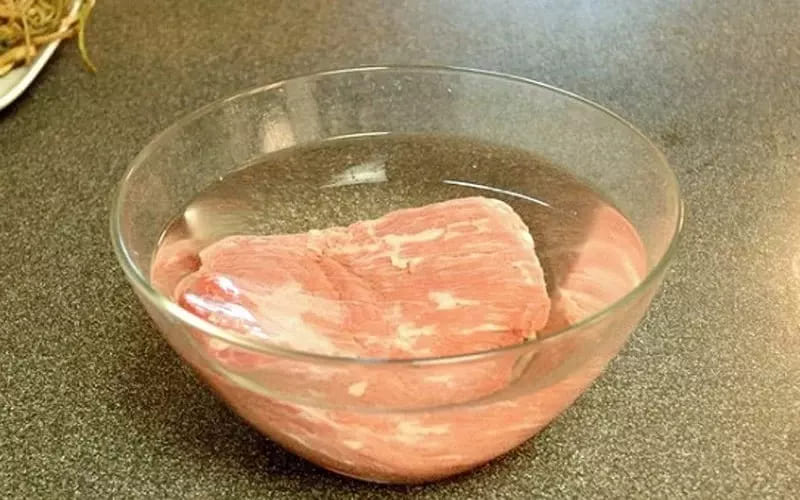
Washing meat with saltwater
Washing Meat with Boiling Water
Another effective method for washing meat is using boiling water. Boil water first, then add the beef to remove bacteria and reduce the natural odor. Afterward, rinse the meat with cold water to keep it fresh and retain its flavor.
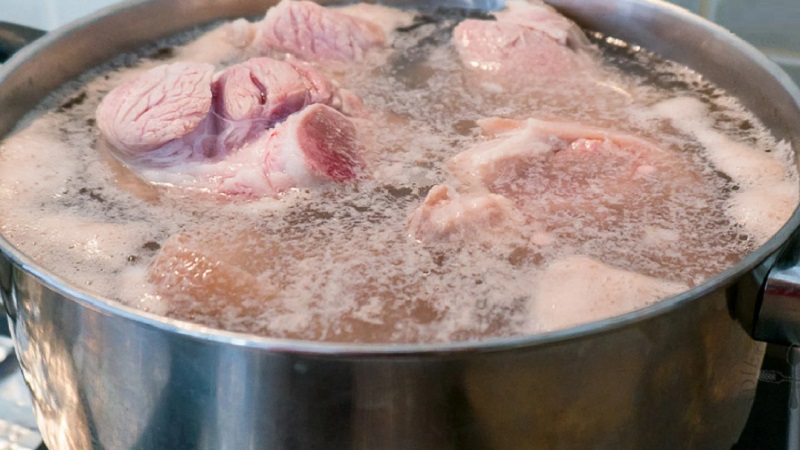
Washing meat with boiling water
Washing Meat with Natural Ingredients
If the beef has a strong odor, you can use natural ingredients such as vinegar, lemon juice, or a mixture of vinegar and salt. Rub this mixture on the meat’s surface, leave it for about 5-10 minutes, and rinse with clean water. This method effectively eliminates odor while keeping the meat fresh and flavorful.
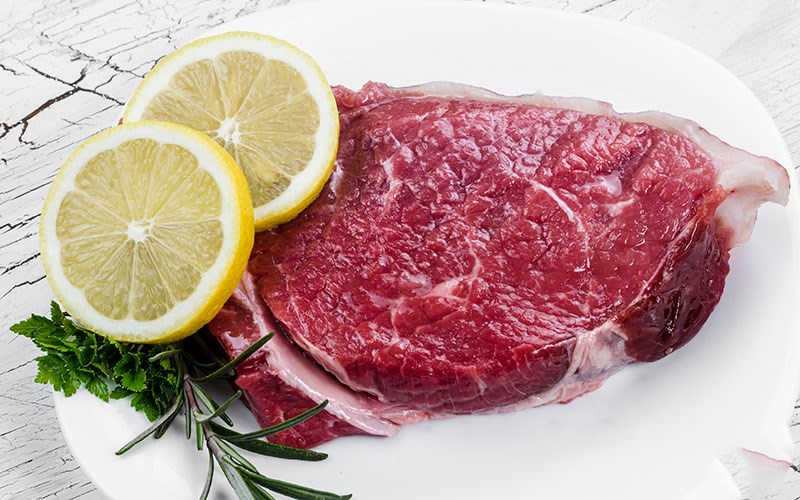
Washing meat with natural ingredients
This article provides insights into whether beef should be washed before cooking and the best methods for washing it. Hopefully, these tips will help you properly process beef, ensuring its freshness and original flavor.
8 Common Mistakes People Make with Cutting Boards
Are you using your cutting board correctly? Many Vietnamese households rely on cutting boards in their kitchen, but not everyone knows how to use them properly, especially when it comes to wooden cutting boards. Check out these 8 mistakes to avoid when using a cutting board to ensure both hygiene and safety for everyone in your family.
Is Refrigerated Leftovers Linked to an Increased Risk of Cancer?
Dr. Lam Van Man, Head of Research, Development and Technology Transfer Department of the Institute of Safety Food, has warned of the risk of food poisoning when reheating leftovers from the refrigerator. But what should we be aware of when it comes to the possibility of these leftovers causing cancer? Here, we explore what the experts have to say on the matter and offer some tips for safe eating.
Preserving Leftover Food from the Tet Holiday
With the beginning of the Lunar New Year, many households are stocking up on food to celebrate the festive occasion. While keeping food in the refrigerator is convenient, it can also be harmful to users if not done correctly. We have compiled a few tips to help ensure food remains fresh and safe to consume during Tet.




























